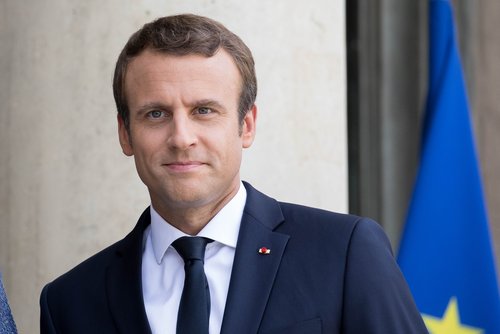Emmanuel Macron's proposals for euro area reforms go well over the target. They are unrealistic and over-ambitious with regard to the outcome of the German elections. The euro area needs a common understanding of the fundamental issues of the Eurozone.

Euro area: When horizons exceed red lines
In his speech yesterday, the French President, Emmanuel Macron, has called for an extensive budget and a European finance minister for the euro area. He suggests using the budget primarily to stabilize economic fluctuations.
The French proposal is rejected in many (northern) European capitals. A large euro area budget would not only mean a lasting communitisation of national tax revenues. In particular, negative political incentives would arise. The proposed euro area budget would not remain untouched for a long time, shock absorption would not be the only use of the budget. The resources available would in the worst case be used to enforce the fiscal and economic policy objectives of individual governments, for example to promote their own re-election. Although restrictive rules for the use of funds are conceivable, in retrospect the question arises whether governments will abide by the rules. Consequently, the question arises which economic policy objectives the euro area (as a community) would pursue with such extensive resources, who would formulate them and who would be responsible for their enforcement and control.
This is where Macron's second call kicks in: the nomination of a finance minister for the euro area. This minister would need to be authorized to correct problematic national policies as far as the euro area budget would be concerned. This would require a partial surrender of sovereign rights by euro area member states. A willingness to do so is not apparent - even in France.
The proposals of Macron can therefore be reduced to a necessary denominator before considering a common budget or a finance minister: Euro area members must first overcome their dogmatic differences in important core issues and agree on an integration process together. The differences reflect the conflict between two economic orthodoxies, which manifest themselves in the different traditions of France (discretionary) and Germany (rule-based). In order to achieve high-er levels of integration together, the euro area members must agree on how much solidity must be given before solidarity can be granted. This is the first question to be answered. Only after that question is answered, members can proceed to discuss which institutional reforms are necessary in order to complete the security architecture of the Euro-zone – because that is what is most important.
After the German elections last weekend, it is all the more urgent for France to be open to such a debate. Premature and over-ambitious demands for the future cannot currently be positively answered by two of the supposedly three future German governmental parties. The FDP, as well as parts of the CDU / CSU, will categorically reject any instruments that enable communitisation of tax payers’ money to secure their own political survival or re-election.
The primary goal of German, French-German and European politics must now be to try to reach compromise on all sides and to agree on the integration steps on core issues. It is not helpful to open up new horizons in Europe, if the red lines in the here and now are already exceeded.
More on the topic
![[Translate to English:] Das Gebäude des Weißen Hauses in Washington, D.C. in den Vereinigten Staaten von Amerika. [Translate to English:] Das Gebäude des Weißen Hauses in Washington, D.C. in den Vereinigten Staaten von Amerika.](/fileadmin/_processed_/c/1/csm_GettyImages-2161499385_White_House_Editorial_884306add8.jpg)
Trump or Harris or ...? What Europe must prepare for
A few months before the presidential election in the USA, Donald Trump has a good chance of being re-elected. On the Democratic side, the incumbent president has withdrawn his candidacy after a long period of hesitation, while Vice President Kamala Harris is ...
IW
Compendium 5.5: CO2 Regulation of Road Transport in Europe
With the Compendium CO2 Regulation in Europe, the IW has been providing the interested public with a comprehensive collection of data on the development of CO2 emissions from passenger car traffic in the European Union, as well as on the applicable regulatory ...
IW